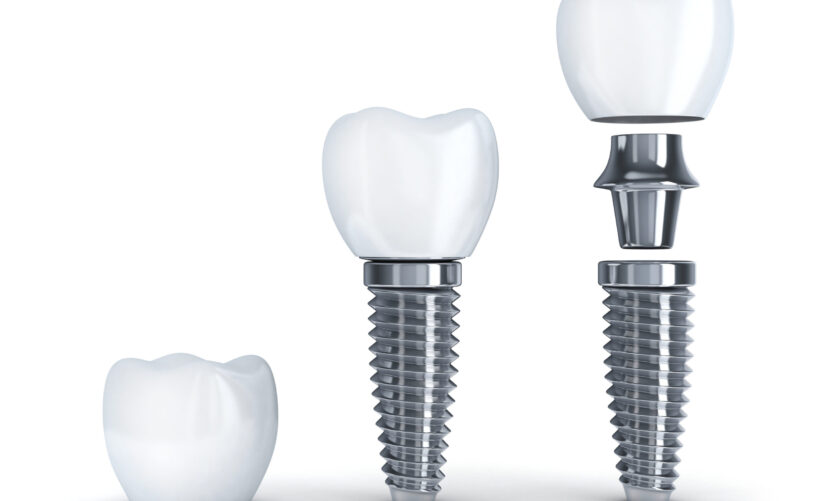
Dental implants are often referred to as “cosmetic dentistry”. However, in reality, when teeth have been knocked out and eating or speaking clearly becomes an issue then they cease to be a luxury.
Dental implants, in fact, are part of restorative dentistry, which means specialist dentists not only work to enhance the mouth’s appearance but improve the oral condition.
Any type of dental trauma can be scary and often very painful
For professional dentist Dr Philip McCauley, it’s always helpful to know a little bit about what damage has been done to best assess the treatments that will need to be required.
If you have had an accident that involves your teeth, contact a dentist today.
Book an appointment.
Most dental traumas are quite painful, but treatable.
Chipped teeth are probably the most common dental injury, but emergency dentists are equipped to deal with traumas as severe as dislodged teeth or lacerations to the soft tissue in the mouth.
In some cases, the injury might not be extremely painful, but it’s important that it is assessed by a healthcare professional.
The global phenomenon of dental trauma is estimated to affect 50-60% of the world’s population (including both the primary and the permanent teeth). – Dental Trauma Guide
Treatment of dental traumas varies depending on the situation at hand, i.e. what sort of trauma has occurred and how severe it is.

With superficial chips or fractures, there is generally not a lot of discomforts unless the crack breaks through the enamel and exposes the inner pulp of the tooth.
It’s much easier to fix a cosmetic problem rather than a medical one, and if there’s no need for fillers or bonding.
Normally your dentist should be able to reattach any broken pieces or rebuild the tooth using dental cement, without the need for an anaesthetic.
If a large portion of the tooth has been lost, you may need a crown to protect the remainder against infection or further damage.
There is a solution other than implants that have worked in the past.

Knocked-out teeth can be simply replaced with implants
Teeth that have been completely removed from their socket have to be saved as soon as possible before the root dies and the tooth cannot reattach to the soft tissue.
While you wait to see the dentist, carefully wash the tooth in warm water without brushing or scraping it, then try and put it back in the socket if you can.
If this is too painful or it won’t hold at all, carry it in a cup of milk – this is good for the enamel and keeps the roots alive until they can be reattached.
It’s important to get to a dentist within an hour if you want to save your natural teeth.
If dentists manage to cement the tooth back in place, it has to be stabilised with a splint for several weeks, this stops it from becoming dislodged and allows the gums to grow around it.
Over the next few weeks, you will be able to tell if the tooth was reattached in time or if it has to be fully removed, it’s likely that you will need a root canal treatment if there has been serious damage to the nerve centre.
Not all injured teeth with fall out of the mouth upon impact, sometimes they can be pushed further into the socket or become twisted into a different position.
Dental surgeons should be able to reposition the teeth in the ruptured tissue, but there are likely to be more pressing problems with the roots.
In the same way as knocked-out teeth, you will probably need a root canal procedure to prevent infection and a filling at a later date.
Again, time is a factor with dislodged teeth, if the tooth isn’t returned to its proper position and cemented into place, bacteria can cause the area to become infected, this is to be avoided at all costs as it can lead to decay, gum disease and tooth abscesses.
Dental traumas that involve damage down to the root are more serious and are usually very painful.
There are lots of things that can go wrong with the healing of fractured roots; this is because they are very delicate and vulnerable to infection if they are not protected by the hard tooth.
A fracture that is closer to the tip of the root has a better chance at healing properly, but if it’s closer to the gum line, chances are the dentist won’t be able to save your tooth and will recommend an implant.
The normal course of action is to splint or bond the tooth to the surrounding dentures, this stabilises it for a period of time until it can be determined whether the pulp is still active and can be saved.
If the tooth is still loose after about six months, it can either be removed or permanently fixed to the teeth next to it to keep it stable.
That all depends on the nature of the injury, the length of treatment, and the healing process.
The best results are usually seen in patients who have seen a dentist immediately after the trauma occurred, time is the biggest factor in almost all dental emergencies.
Book an appointment. Call 01202 973300
Just tell us a little about your main concerns and we will find the right treatment to suit your needs
Book Appointment


